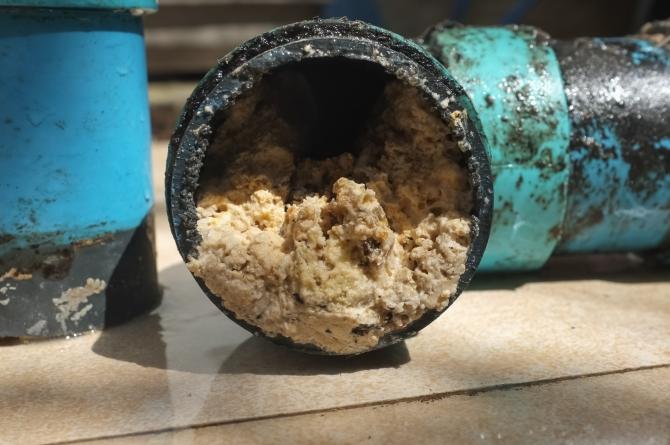Fats, Oil and Grease (FOG)
Prevent FOG blockages in your pipes
FOG refers specifically to Fats, Oils and Grease entering the sewer system when poured down drains in homes, apartments, restaurants, industry and public facilities.
As a byproduct of cooking, FOG is usually found in:
- Baking goods
- Butter, lard, shortening
- Cooking oil
- Fats and oil from cooked meats
- Food scraps
- Gravy
- Mayonnaise
- Salad dressings
- Sauces
- Sour cream
A little bit of grease from plates and cooking utensils can't be avoided, but you can reduce the amount of grease going into your sewer pipes by following these simple guidelines:
- Never pour oil or grease down the drain.
- Scrape grease into a disposable container and put it in the garbage.
- After scraping, wipe out pans with a paper towel to remove the last of the grease and put the paper towel in the garbage
- Use a sink strainer to catch food wastes during dish washing, and wipe the debris out of the strainer with a paper towel and put it in the trash.
- Minimize the use of your garbage disposal, which adds large solids to your pipes.
Why is FOG a problem?
Blockage can lead to sewer overflows on your property. All too often, fats, oils and grease are disposed of improperly during food preparation and kitchen clean-up. When poured down the drain (sink or floor), FOG can build up, blocking sanitary sewer lines. This accumulation not only reduces the capacity of the wastewater collection system, but it also alters its effectiveness.


